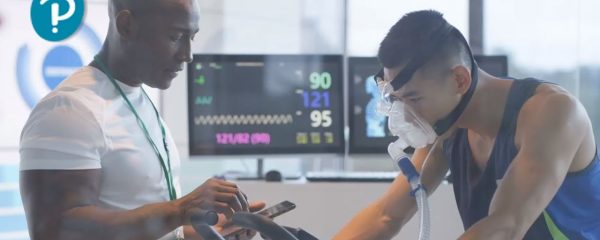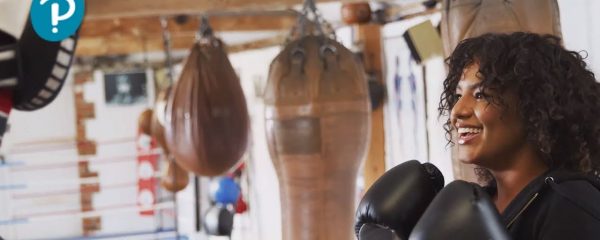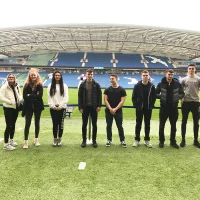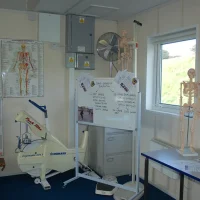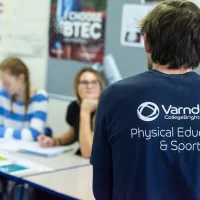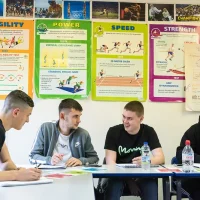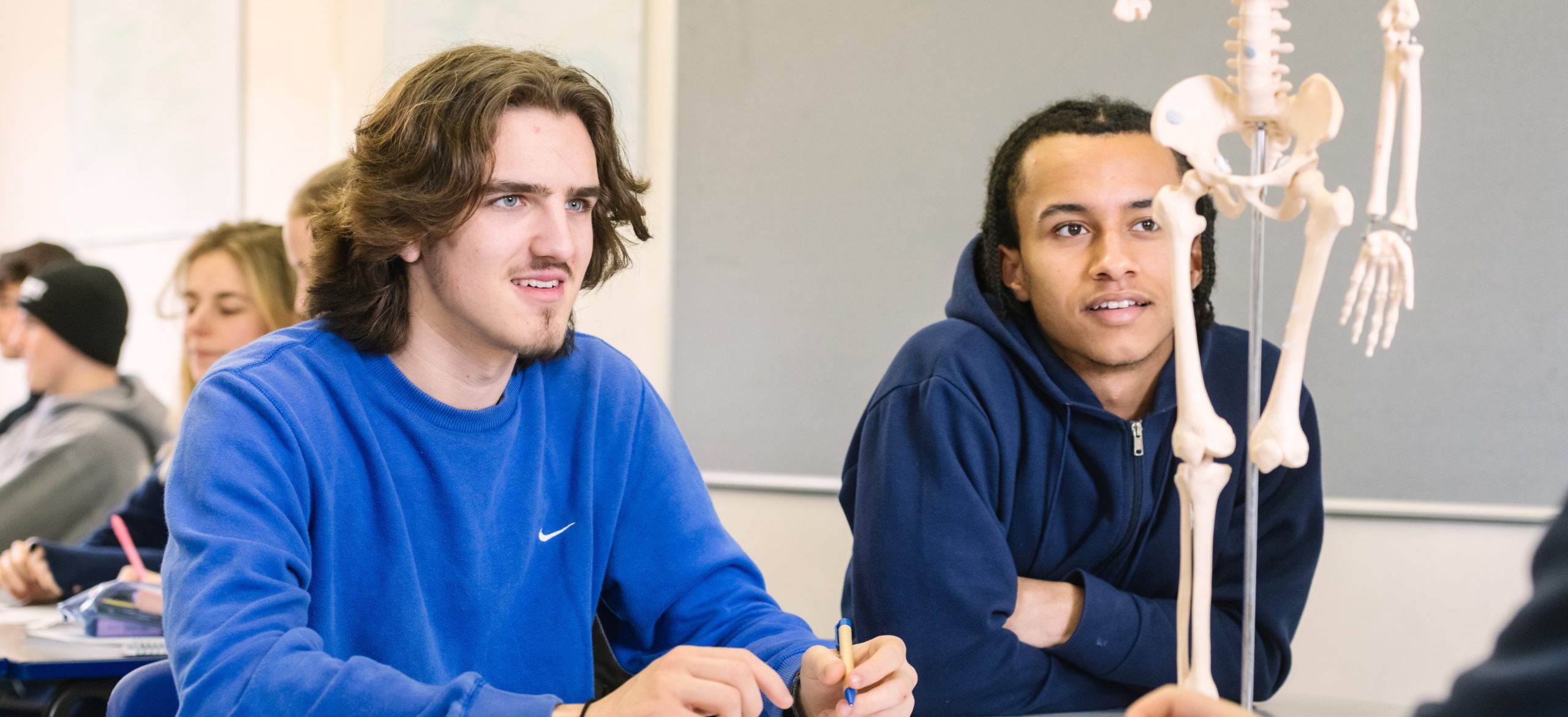
Sport
The programmes encompass areas of study from physiology, psychology and social issues, to sports coaching, leadership, health & fitness, as well as practical performance analysis and development. Sessions are a mixture of academic theory with applied vocational practice, aimed to develop your knowledge and performance skills as a great pathway to study at university or step into a career in the sports industry. Students can study different sizes of the Sports BTEC, running for two years alongside other A Levels or Vocational Qualifications.
TOPICS COVERED
AVAILABLE AS A SINGLE (EQUIVALENT TO 1 A LEVEL) OR DOUBLE (EQUIVALENT TO 2 A LEVELS)
- Anatomy and Physiology in Sport (Examined Unit)
- Fitness Training and Programming (Examined Unit)
- Professional Development in Sport
- Sports Leadership
- Fitness Testing
- Sports Psychology
- Practical Sports Performance
- Coaching for Performance
- Sports Business (Examined Unit)
- Skill Acquisition
Course Essentials
Courses Available
BTEC Level 3 Extended Certificate (equivalent to 1 A Level) OR BTEC Level 3 Diploma (equivalent to 2 A Levels)
How The Course is Assessed
Exams, coursework assignments and practical assessments.
Career Pathways
If you are passionate about sport, physical activity, health or fitness, this is the subject for you. The course can be used as access to a university sports related degree (Sports & Exercise Science, Coaching, Sports Development, PE teaching), or it can provide a route into employment in the sports and fitness sector.
Transferable Skills
Students will develop academic skills; research, evaluation, analysis & discussion in social and physical sciences, and practical skills; leadership, teamwork, organisation & problem solving as well as enhancing fitness and health. The economic impact of sport places it within the top 15 sectors in England, and its wider economic benefit make it a key part of society today. With over 440,000 jobs in England and a growing focus on health and participation in physical activity, in addition to the teamwork and leadership skills, it will support your success in other careers.
Other Information
Students may also undertake additional vocational qualifications to support their Level 3 programme and diversify their CV. These include:
- Gym Instructing
- Sports Leadership
- Coaching Badges
- Duke of Edinburgh
Whether you are motivated by developing your sports performance or just interested in getting back into sport, these courses have something for you.
Enquiries To
Jude Macdonald: jum@varndean.ac.uk
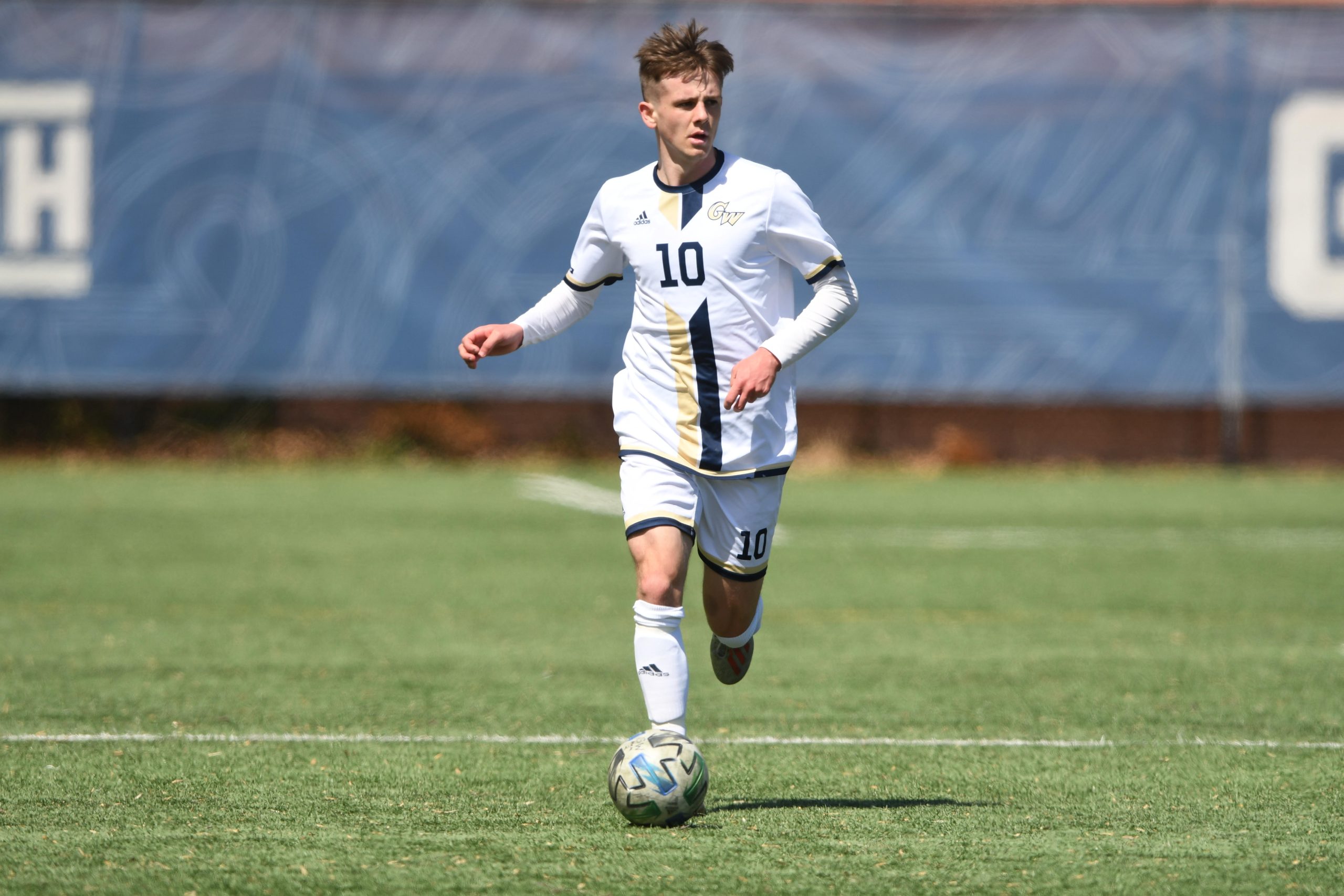
Thomas Cooklin Levey
Studied: Maths, Biology, Sport BTEC
Progression: Data Science & Mathematics, George Washington University
I originally wanted to pursue a profession in the Sports Science Industry and have changed my studies since being at university. I play competitive football for my university where I received an athletic scholarship. I will be transferring this September to continue playing football at Western Michigan University where I will earn my Master’s degree in Finance Analytics.
Whilst at University I have been interning for a non-profit housing organisation in DC called the National Multifamily Housing Council (NMHC) and I also work as a research intern working with lots of data. The subjects I chose at Varndean was because I love sports and the data science behind it.
While at Varndean I enjoyed Maths and it was definitely my favourite subject. Varndean provided a great opportunity to continue my athletic passions and be involved in a vibrant learning community creating the opportunity for me to continue my studies at University in America.

